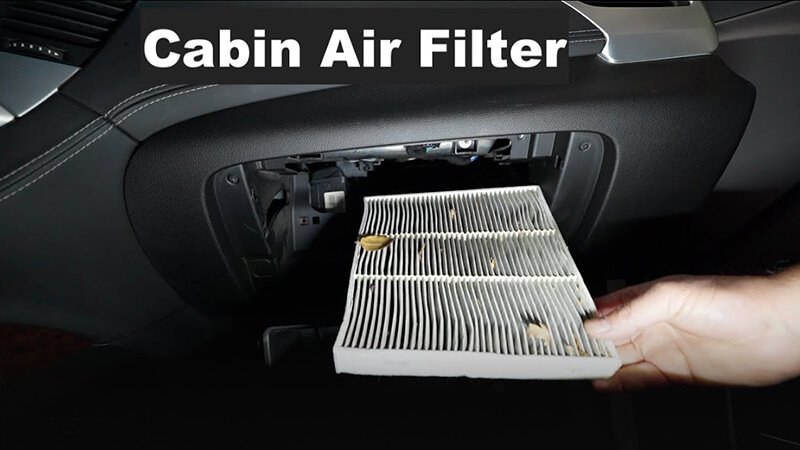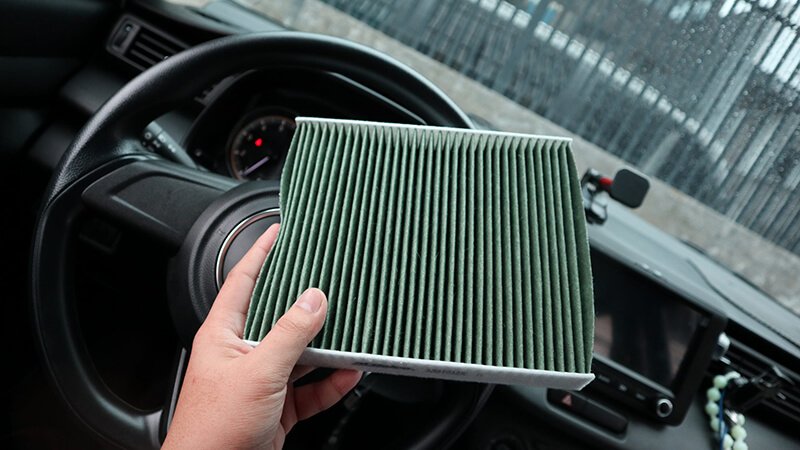When I first heard clients ask if they should remove a clogged air filter, I knew they were thinking about performance. But removing the filter is a dangerous shortcut that risks engine health.
No air filter is worse than a dirty one. A dirty filter may reduce airflow and performance, but it still protects the engine from dust, grit, and abrasives. Without any filter, unfiltered particles cause severe wear on pistons, valves, and cylinder walls.
I always tell my clients: “A dirty auto air filter is far better than no air filter at all.” Let me explain why this simple truth matters more than many people realize.

Is it better to have no filter or a dirty filter?
Some drivers remove filters, thinking that free airflow gives more power. I have seen this mistake ruin engines faster than expected.
It is better to have a dirty filter than no filter. A dirty filter still blocks dust and harmful particles, even if airflow is restricted. Without a filter, every particle enters the engine and accelerates wear and failure.
The hidden cost of no filter
I once worked with a distributor who removed filters to save money. His fleet of trucks looked fine for a month. Then engines started consuming more oil, losing compression, and breaking down. By the time he called me, repair costs were higher than years of filter replacements.
Why dirty is safer than none
| Situation | Risk | Result |
|---|---|---|
| No filter | Direct dust entry | Severe engine wear1 |
| Dirty filter | Limited airflow | Reduced performance but safe engine |
| Clean filter | Optimal airflow | Maximum efficiency and protection |
My lesson from that case
When that distributor finally switched to Runex Auto filters2, he saw fewer breakdowns, better uptime, and longer engine life. He admitted the earlier “savings” nearly bankrupted his operation. I use his story often because it proves the simple truth: dirty is still better than none.

Is it better to have an air filter or no filter?
Some people think air filters are optional, especially in cleaner urban areas. I know this is not true. Engines breathe air every second, and air always contains dust.
It is always better to have an air filter than no filter. Air filters keep abrasive particles out of the engine. Without them, even small dust levels damage valves, piston rings, and cylinder walls.
Why filters matter everywhere
Even city air carries fine dust, tire particles, and road grit. I once inspected a filter after only a month of city driving. It was already gray with trapped dirt. Without that filter, those particles would be grinding inside the combustion chamber.
Key benefits of having a filter
| Benefit | Explanation |
|---|---|
| Particle barrier3 | Stops grit and sand from scratching engine surfaces |
| Consistent combustion4 | Keeps airflow steady for correct fuel mix |
| Longer lifespan | Reduces wear and delays major overhauls |
What I tell my clients
I explain that the cost of one filter is nothing compared to an engine rebuild. At Runex Auto, our air filters use high-density media that traps even micro particles. This protection is not luxury; it is survival for every engine.

Are air filters really necessary?
Many drivers ask if filters are just another way for companies to make money. I understand the doubt, but I also know the science behind it.
Air filters are necessary because they protect engines from harmful particles. Without them, the engine wears faster, loses efficiency, and risks costly breakdowns. Filters maintain clean airflow, stable combustion, and reliable performance.
Why they are not optional
Engines run by sucking in massive volumes of air. For every gallon of fuel, thousands of gallons of air pass through. If that air carries even tiny amounts of dust, the total adds up fast.
Consequences of no filter
| Problem | Effect |
|---|---|
| Dust inside engine | Scratched cylinder walls |
| Poor airflow | Bad fuel mix and misfires |
| Shorter life | More repairs and downtime |
How Runex Auto solves this
We design filters with layered synthetic fibers5 that hold dirt while keeping airflow stable. During my years in the industry, I tested filters from many brands. Some collapsed under heavy dust. Runex filters6 kept their shape and efficiency even in harsh conditions. That reliability convinced many clients to stay with us for the long term.

What is the difference between a clean and dirty air filter?
A clean filter looks simple, but its effect is powerful. I always compare the two for clients to show the hidden costs of neglect.
A clean air filter gives maximum airflow, stable combustion, and high performance. A dirty filter still protects but reduces power and efficiency. The worst choice is no filter, which destroys the engine.
How a clean filter helps
When I installed new filters in a customer’s fleet, the drivers reported smoother acceleration and better fuel economy7. The difference was noticeable right away.
Clean vs dirty filter comparison
| Filter state | Airflow | Engine safety | Fuel use |
|---|---|---|---|
| Clean | Maximum | Full protection | Best |
| Dirty | Reduced | Protection continues | Slightly worse |
| None | Unrestricted | No protection | Worst long-term |
Why it matters for procurement
In my experience, procurement managers sometimes delay filter replacement8 to cut costs. I explain that dirty filters reduce performance but still protect. Replacing them on time ensures efficiency and engine life. At Runex Auto, our filters are built to last longer than generic brands, so replacement cycles are less frequent and more cost-effective.

Conclusion
I have learned through failures and success that no air filter9 is never an option. A dirty filter still protects the heart of the engine, while no filter destroys it. Clean filters offer the best balance of power, fuel economy, and long life. At Runex Auto, I keep reminding clients: protection first, performance next, savings always follow.
-
Learn about the impact of engine wear on vehicle performance and maintenance costs to make informed decisions. ↩
-
Explore the advantages of Runex Auto filters to understand how they can enhance engine performance and longevity. ↩
-
Understanding the role of a particle barrier can help you appreciate how filters protect your engine from damage. ↩
-
Exploring this topic will reveal how consistent combustion optimizes fuel efficiency and engine longevity. ↩
-
Explore how layered synthetic fibers enhance filter performance and durability, ensuring optimal engine protection. ↩
-
Discover why Runex filters are trusted for their reliability and efficiency in maintaining engine health. ↩
-
Discover how clean filters can significantly enhance fuel economy, leading to cost savings and better vehicle performance. ↩
-
Learn why timely filter replacement is crucial for maintaining vehicle efficiency and prolonging engine life. ↩
-
Find the best auto air filter from Runex Auto. ↩













